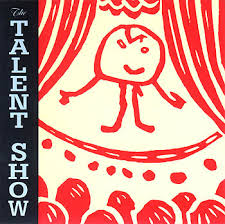
A couple of weeks ago, I was asked to help judge a talent show. I enjoy watching talent contests, especially when there is a possibility that some of the contestants may not be very good. I enjoy watching American Idol during the audition episodes because this is when you get to see a lot of people who have a false sense of confidence about their musical ability. Watching these train wrecks can be very entertaining. Beauty pageants with a talent component have the same appeal for me. It is unfortunate for these beautiful young women that they have to come up with some sort of talent to participate in these competitions. Many sing that should never sing. More of them should try ventriloquism. Bad ventriloquists are more tolerable than bad singers. There isn’t that much difference between a good and bad ventriloquist.
Anyway, this is the second talent show I’ve been asked to judge in the last few years. The previous talent show had younger children than this one. This contest had older kids and promised the possibility of moving on to bigger competitions. This was more serious business. I was possibly the oldest judge in the bunch but my music and entertainment credentials were the least among the bunch. I was with music educators, professional musicians and performers that I respected. I’m just some hack singer/songwriter that one of the organizers could count on when they needed a male among the judges.
As the contest began, I made a mental list of rules for myself. These rules were intended to help me be a better judge and help keep me from hurting the feelings of any young person in the competition. Here are my rules:
1. Pay as much attention as you can while they are performing. You may have a limited amount of time to score the acts. While you are writing notes and scoring, you might miss something really good. Or really bad.
2. Go light on notes. It’s the score they are interested in, not words of encouragement or criticism. Assume that a contestant or one of their family members will see your notes. You don’t want to upset anyone. You can still do your job without having any trail of potentially upsetting feedback.
3. Don’t look at the other judge’s scores. Be ready to give your opinion, not someone else’s. If you are just going to copy someone else’s score, they might as well not have you participate.
4. Don’t talk to the other judges during a performance. The contestants may assume you are saying something really bad. Even if you are, you don’t want them to think you are.
5. Don’t applaud for any act. You might forget to applaud for some acts. Or applaud for one more than another. You need to be writing your feedback, not showing it with applause.
6. Smile at the contestants. They may not be able to see you but if they do, a smiling face might help them do the best that they can. You don’t want the acts to be thrown off by a frowning judge.
7. Try to use the full range of the scoring criteria in all categories you are rating the acts. You may think that no one deserves a 1 or 2 on a 10 point scale but you might need to go that low to differentiate between acts.
8. Don’t score the early acts too high or low. If you really like that first act, you shouldn’t score them with the absolute highest rating because someone later might impress you more. Even if you can go back to the earlier acts and change their scores, you might not be able to remember everyone.
9. Be ready to score talent that you know nothing about. During this last contest, I had the opportunity to judge dance acts. A lot of dance acts. I don’t really know very much about dance but I know what I find entertaining and interesting. I used this as an opportunity to try and differentiate between different skill and talent levels of a craft I never consider very much.
10. Arrive early. This show is about the kids, not you. You can help by being there early so it’s one less thing the organizers have to worry about.
11. Don’t drink too much before or during the show. You don’t want to have to leave during any act. You don’t want to have to delay the show. Extra potty breaks can slow things down. You don’t want to be the reason for extra breaks.
12. Leave early. If given the opportunity, you want to exit before they announce the winners. You don’t want any confrontations with passionate contestants or family members.